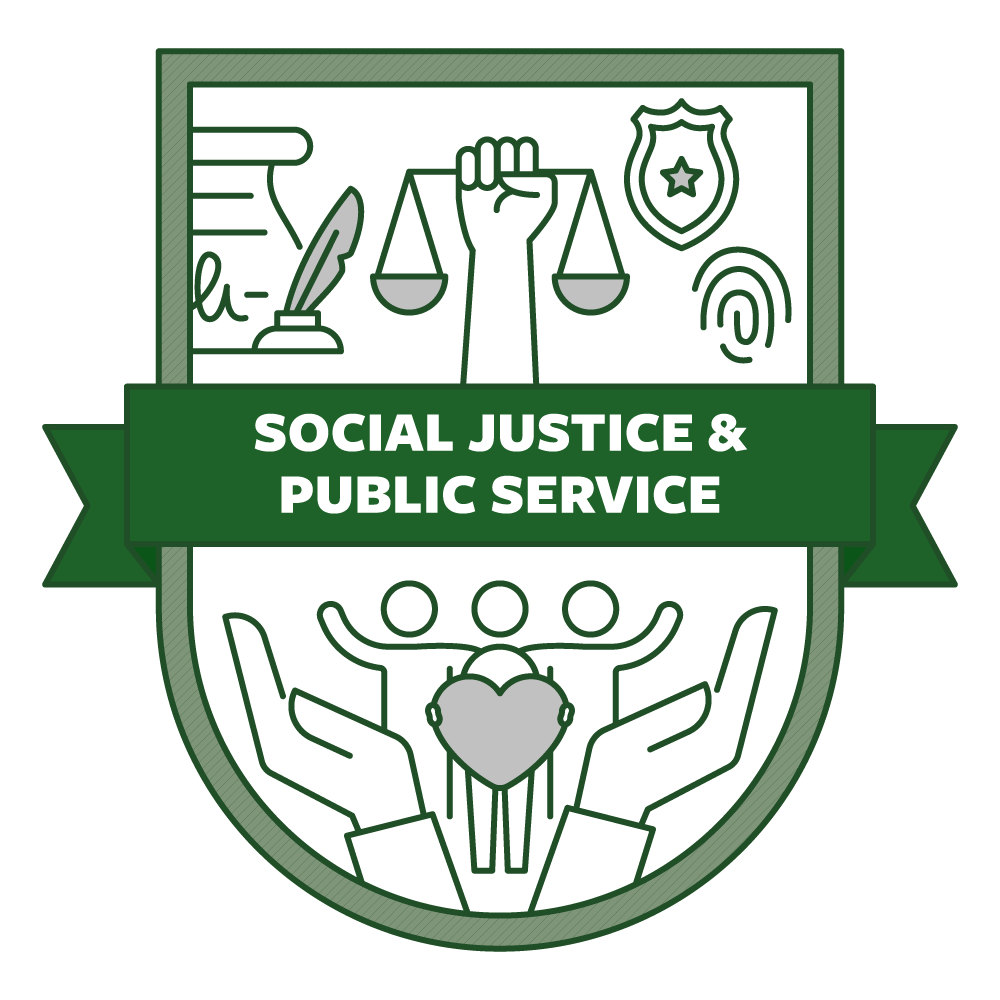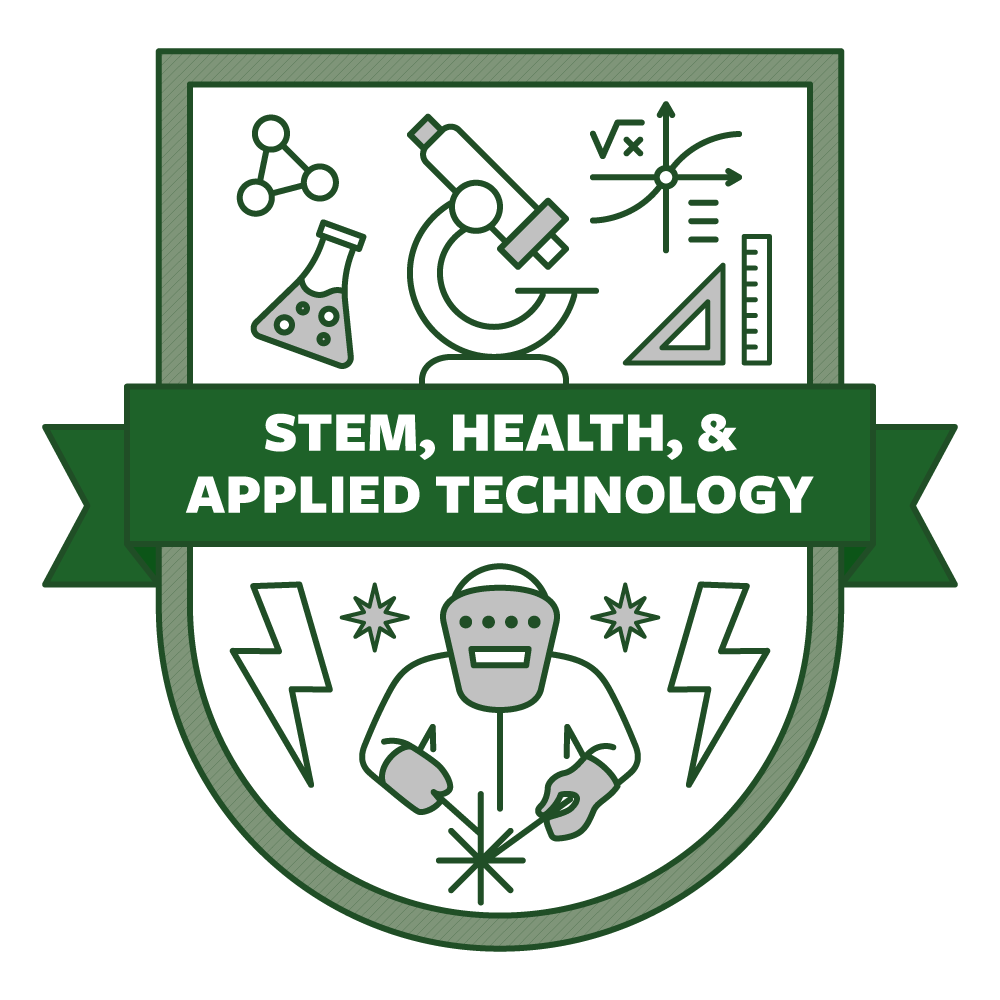Courses Offered at
Woodland Campus
Lake County Campus
Online
Certificates & Degrees
Ready to get started?
Apply and get ready for our next term:
- Fall 2025 — Classes start Aug 11
About the Human Services Discipline
The Human Services Associate in Science degree is designed to prepare students to enter the highly demanding field of human services to provide quality care and support. Students will gain knowledge of human service delivery systems; intervention strategies and case management techniques; communication skills for working with individuals, groups, and diverse populations; ethical and legal standards of practice; and personal and interpersonal skills needed to manage stress and increase wellness. This degree is designed to prepare students for employment as Human Service counselors, workers, and aides in areas of social services, vocational rehabilitation, mental health, child and family services, support services for seniors and people with disabilities and educational facilities, and to provide additional training and skills for career advancement to currently employed paraprofessional human service workers.
Certificates in Human Services
The Chemical Dependency Counseling Certificate prepares students for entry-level employment in a variety of settings including outpatient or residential care centers, mental health, and substance abuse facilities. Chemical dependency counselors work with individuals and or families. Coursework addresses a wide range of issues and ethics in chemical dependency treatment, including the twelve counselor core functions: screening, intake, assessment, client orientation, treatment planning, counseling, case management, crisis intervention, client education, referral, report and record keeping, and consultation with other professionals. Students will also complete a 255-hour supervised internship. This certificate meets the standards for entry into the Basic Certified Addictions Treatment Counselor (CATC) and CATC I certification process established by the federal Substance Abuse and Mental Health Services Administration and certification agencies in the State of California. Certificate completers will qualify to apply for CATC or CATC I certification through state-approved certification boards.
Program maps suggest courses to take by semester and include career and transfer information when available.
Required Courses for this major (40 Units)
Required Courses (37 Units)
- HUSEV11 Working with Diverse Communities (3 Units)
- HUSEV20 Introduction To Chemical Dependency Studies (3 Units)
- HUSEV21 Introduction to Physiological and Psychological Effects of Drug Abuse (3 Units)
- HUSEV22 Development and Progression of Addictive Patterns of Behavior (3 Units)
- HUSEV23 Legal and Ethical Aspects of Human Services (3 Units)
- HUSEV24 Introduction to Case Management (3 Units)
- HUSEV25 Basic Chemical Dependency Counseling (3 Units)
- HUSEV28 Skills and Techniques of Group Counseling (3 Units)
- HUSEV40 Family and Addiction (3 Units)
- HUSEV41 Co-Occurring Disorders (3 Units)
- HUSEV44R Chemical Dependency Counseling Seminar and Internship (7 Units)
>*HUSEV 44R should be taken for two semesters (3.5 units per semester) to complete the 7-unit requirement.
Elective– select one course (3 Units)
- HUSEV10 Introduction To Human Services (3 Units)
- PSYCC1000 Introduction to Psychology (3 Units)
- PSYCH41 Lifespan Development (3 Units)
- PSYCH46 Abnormal Psychology (3 Units)
- SOCIL1 Introduction To Sociology (3 Units)
- SOCIL2 Social Problems (3 Units)
- Woodland Campus
- Lake County Campus
- Fully Online
Associate Degrees in Human Services
Students who complete the required courses and 255-hour internship for the Chemical Dependency Counselor Certificate may complete additional graduation requirements to earn the Chemical Dependency Counseling Associate in Science. This degree meets the standards for application for certification as a Certified Addictions Treatment Counselor II (CATC II) established by the federal Substance Abuse and Mental Health Services Administration and certification agencies in the State of California. Degree completers will qualify to apply for certification as a CATC II through state-approved certification boards. Completion of the Associate of Science degree will assist students in obtaining multiple career opportunities including, but not limited to, Behavioral Health and Chemical Dependency Case Manager, Behavioral Health Counselor, Chemical Dependency Counselor and Treatment Facilities Counselor.
Program maps suggest courses to take by semester and include career and transfer information when available.
Required Courses for this major (37 Units)†
- HUSEV11 Working with Diverse Communities (3 Units)
- HUSEV20 Introduction To Chemical Dependency Studies (3 Units)
- HUSEV21 Introduction to Physiological and Psychological Effects of Drug Abuse (3 Units)
- HUSEV22 Development and Progression of Addictive Patterns of Behavior (3 Units)
- HUSEV23 Legal and Ethical Aspects of Human Services (3 Units)
- HUSEV24 Introduction to Case Management (3 Units)
- HUSEV25 Basic Chemical Dependency Counseling (3 Units)
- HUSEV28 Skills and Techniques of Group Counseling (3 Units)
- HUSEV40 Family and Addiction (3 Units)
- HUSEV41 Co-Occurring Disorders (3 Units)
- HUSEV44R Chemical Dependency Counseling Seminar and Internship (7 Units)
*HUSEV44R should be taken for two semesters (3.5 units each) to complete 7-unit requirement.
To earn an Associate degree, students will complete at least 60 units of degree-applicable coursework, including required courses for the major (listed above), General Education, and Graduation Requirements.
- Woodland Campus
- Lake County Campus
- Fully Online
The Human Services Associate in Science degree is designed to prepare students to enter the highly demanding field of human services to provide quality care and support. Students will gain knowledge of human service delivery systems; intervention strategies and case management techniques; communication skills for working with individuals, groups, and diverse populations; ethical and legal standards of practice; and personal and interpersonal skills needed to manage stress and increase wellness. This degree is designed to prepare students for employment as Human Service counselors, workers, and aides in areas of social services, vocational rehabilitation, mental health, child and family services, support services for seniors and people with disabilities and educational facilities, and to provide additional training and skills for career advancement to currently employed paraprofessional human service workers.
Program maps suggest courses to take by semester and include career and transfer information when available.
Required Courses for this major (27 Units)†
Required Courses (24 Units)
- HUSEV10 Introduction To Human Services (3 Units)
- HUSEV11 Working with Diverse Communities (3 Units)
- HUSEV23 Legal and Ethical Aspects of Human Services (3 Units)
- HUSEV24 Introduction to Case Management (3 Units)
- HUSEV28 Skills and Techniques of Group Counseling (3 Units)
- HUSEV43 Social Work and Human Services Seminar and Fieldwork (3 Units)
- PSYCC1000 Introduction to Psychology (3 Units)
- SOCIL1 Introduction To Sociology (3 Units)
Approved Electives – choose one course (3 Units)
- ECE3 Child Growth and Development (3 Units)
- HUSEV40 Family and Addiction (3 Units)
- PSYCH41 Lifespan Development (3 Units)
- PSYCH46 Abnormal Psychology (3 Units)
- SOCIL2 Social Problems (3 Units)
- SPECH8 Intercultural Communication (3 Units)
To earn an Associate degree, students will complete at least 60 units of degree-applicable coursework, including required courses for the major (listed above), General Education, and Graduation Requirements.
- Woodland Campus
- Lake County Campus
- Fully Online
The Associate in Science for Transfer in Social Work and Human Services is specifically designed as a pathway to the California State University for social work, human services, and related majors. The courses within this program provide students with the historical context and foundations of social work, as well as hands on experience in community-based organizations. Many of the courses in this degree are also aligned with the Human Services Associate in Science.
Students who complete an Associate Degree for Transfer (AA-T or AS-T) will receive priority admission with junior status to the California State University System and priority admission consideration to their local CSU campus or to a program that is deemed similar to their community college major. This priority does not guarantee admission to specific majors or campuses. Students should consult with a counselor for more information on specific university major admission and transfer requirements. The following are required for all AA-T or AS-T degrees: – Minimum of 60 CSU transferrable semester units – Minimum grade point average (GPA) of at least 2.0 in all CSU-transferable coursework – Satisfactory completion (C or better OR Pass*) of courses used to satisfy major requirements AND courses used to complete the California General Education Transfer Curriculum (Cal-GETC) requirements *Some majors may not accept a Pass in place of a letter grade. Consult with a counselor before choosing the P/NP grading option.
Program maps suggest courses to take by semester and include career and transfer information when available.
Required Courses for this major (29 Units)†
Required Core Courses (16 Units)
- HUSEV10 Introduction To Human Services (3 Units)
- HUSEV43 Social Work and Human Services Seminar and Fieldwork (3 Units)
- PSYCC1000 Introduction to Psychology (3 Units)
- SOCIL1 Introduction To Sociology (3 Units)
- STATC1000 Introduction To Statistics (4 Units)
Biology Course (choose one) (4 Units)
- BIOL4 Human Anatomy (4 Units)
- BIOL5 Human Physiology (4 Units)
- BIOL10L General Biology (4 Units)
Economics Course (choose one) (3 Units)
- ECON1A Elementary Economics-Macro (3 Units)
- ECON1B Elementary Economics-Micro (3 Units)
Restricted Electives (choose two) (6 Units)
- AJ10 Introduction to Criminal Justice System (3 Units)
- ECE3 Child Growth and Development (3 Units)
- HUSEV11 Working with Diverse Communities (3 Units)
- PSYCH41 Lifespan Development (3 Units)
- PSYCH46 Abnormal Psychology (3 Units)
- SOCIL2 Social Problems (3 Units)
- SPECH8 Intercultural Communication (3 Units)
- Woodland Campus
- Lake County Campus
- Fully Online
Courses in Human Services
Courses in Human Services
HUSEV10 Introduction To Human Services
The course presents an introduction, overview and historical perspective on social work and human services. Special attention is given to current service delivery systems, their policies and procedures, and the tasks of culturally responsive social workers and human service workers within those settings. The course provides an opportunity to strengthen skills to work with all people and explore human service topics such as poverty, mental and physical health, disabilities, life stages, unequal access to resources and education, and substance abuse.
Course Details:
- Letter Grade or Pass/No Pass
- 54 lecture hours
Transferable to CSU only
HUSEV11 Working with Diverse Communities
This course will examine the unique needs, issues, and concerns within diverse communities in respect to the impact of substance use disorders, intervention needs, and responses to treatment. An overview of historical, cultural, social, health and environmental factors impacting diverse communities will be discussed, as well as the role of ethnic and cultural practices. Particular attention will be given to population characteristics such as ethnicity/race, gender, age, economic, sexual orientation, and disability status. Ethnic and cultural differences will be emphasized to provide students with the skills needed to communicate effectively with diverse populations to create equitable, healthier and safer counseling environments.
Course Details:
- Letter Grade or Pass/No Pass
- 54 lecture hours
Transferable to CSU only
- C-ID: ADS 195X
HUSEV20 Introduction To Chemical Dependency Studies
This course provides an historical and sociological perspective on the use, abuse, and social control of drugs associated with substance use disorder. Included are overviews of the biopsychosocial nature of addiction; the impact of addiction on children, families and society; contemporary treatment and prevention approaches; and the addiction counseling profession.
Course Details:
- Letter Grade or Pass/No Pass
- 54 lecture hours
Transferable to CSU only
- C-ID: ADS 110X
HUSEV21 Introduction to Physiological and Psychological Effects of Drug Abuse
This course provides an overview of the neurochemical, physical, and mental effects of commonly used addictive substances. Emphasis is placed on the pharmacology of addictive substances, the medical consequences of use, and therapeutic approaches for managing withdrawal, overdose, and substance use disorder.
Course Details:
- Letter Grade or Pass/No Pass
- 54 lecture hours
Transferable to CSU only
- C-ID: ADS 140X
HUSEV22 Development and Progression of Addictive Patterns of Behavior
This course provides a comprehensive overview of theories and strategies for the prevention of substance use disorders. Primary, secondary, and tertiary and evidence-based prevention models will be introduced and assessed. Prevention programs and activities appropriate for the community, school, parents and family, and work-sites will be covered. Strategies such as education, public policies, media/information dissemination, ethnic, cultural, and gender-specific approaches, environmental risk reduction, and alternatives will be presented and assessed for their application to different target populations. Introduction to the causes and development of addiction and co-dependency. Exploration of the process of denial, use of defense mechanisms, and the influences of the family. The sociological aspects of the addictive process will be explored and discussed.
Course Details:
- Letter Grade or Pass/No Pass
- 54 lecture hours
Transferable to CSU only
- C-ID: ADS 150X
HUSEV23 Legal and Ethical Aspects of Human Services
This course explores the legal and ethical responsibilities in the human services and chemical dependency field. Emphasis is placed on professional responsibility and patient rights as well as issues of the work place and professional growth. Students will explore frameworks for addressing legal and ethical issues arising from engagement, assessment, and treatment of individuals, families, groups, and at-risk populations. Develops understanding of laws, code of ethics, and client rights. Examines the relationship between personal values and professional behavior.
Course Details:
- Letter Grade or Pass/No Pass
- 54 lecture hours
Transferable to CSU only
- C-ID: ADS 160X
HUSEV24 Introduction to Case Management
This course provides an introduction and practical aspects of case management to implement in the human services field and substance-related disorder treatment. Topics covered include case management skills, collaboration, intake, orientation, screening and assessment, record documentation, ethics, clients' rights, confidentiality, interventions, crisis counseling techniques and theories, treatment and recovery planning, aftercare, and consultation and referrals.
Course Details:
- Letter Grade or Pass/No Pass
- 54 lecture hours
Transferable to CSU only
- C-ID: ADS 170X
HUSEV25 Basic Chemical Dependency Counseling
This course is an introduction to skills and techniques used in treating chemical dependency. i.e., psycho-dynamic, behavioral, cognitive behavioral, multi-modal, client-centered, couples and family counseling. Counseling is a relationship in which the counselor helps the client mobilizes resources to resolve his/her problems and/or to modify attitudes and values. Characteristics of an effective counselor, explores several theoretical models of counseling, and assists the individual to develop skills in active listening, building trust, reflecting feelings and content, and using motivational interviewing techniques.
Course Details:
- Letter Grade or Pass/No Pass
- 54 lecture hours
Transferable to CSU only
- C-ID: ADS 120X
HUSEV28 Skills and Techniques of Group Counseling
This course provides an introduction to group dynamics and group leadership skills within the context of human services and addiction treatment work settings including theoretical foundation, stages and processes; roles, responsibilities and ethics; strategies and techniques for facilitating group process. The focus is on group development, interpersonal and intrapersonal processes, and group facilitation skills. Topics included are communication skills in a group setting, theories of group counseling, best practices, guidelines and diversity issues.
Course Details:
- Letter Grade or Pass/No Pass
- 54 lecture hours
Transferable to CSU only
- C-ID: ADS 130X
HUSEV40 Family and Addiction
This course provides an overview of the family systems approach to addiction counseling including analysis and examination of the relationship patterns that develop in families including multicultural families. The student will develop treatment strategies for assisting families and significant others during the stages of active addiction, addiction treatment, long-term recovery and relapse prevention using family-involved approaches. This would include the following: drug adolescent drug issues, co-dependency, enabling, adult children of alcoholics (ACA) with an interdisciplinary perspective.
Course Details:
- Letter Grade or Pass/No Pass
- 54 lecture hours
Transferable to CSU only
- C-ID: ADS 180X
HUSEV41 Co-Occurring Disorders
This course reviews the major concepts, definitions, and features of co-occurring mental health disorders associated with addiction. Emphasis is placed on identifying the most current, evidence-based practices for treating co-occurring disorders and applying screening, assessment, referral, and treatment protocols for persons with co-occurring disorders who enter substance use treatment facilities. In this course, students will develop the skills necessary to apply for California state certification as an alcohol and drug counselor as they relate to treating co-occurring disorders and familiarity with the terminology, diagnoses, and treatment conditions of the mental health field.
Course Details:
- Letter Grade or Pass/No Pass
- 54 lecture hours
Prerequisites:
Transferable to CSU only
- C-ID: ADS 190X
HUSEV43 Social Work and Human Services Seminar and Fieldwork
This course provides a supervised social work or human services internship in a community organization, agency, or institution. Regular meetings focus on the application of academic concepts to support experiential learning. This course provides students with an opportunity to develop skills that facilitate gaining employment in the human services field.
Course Details:
- Letter Grade or Pass/No Pass
- 18 lecture hours
- 108 lab hours
Prerequisites:
Transferable to CSU only
HUSEV44R Chemical Dependency Counseling Seminar and Internship
This course is designed to provide students with an opportunity to practice, develop, and strengthen skills that will facilitate gaining employment in the chemical dependency and human services fields. Students must complete this course two times for credit in order to satisfy industry requirements for 255 hours of supervised field experience in a community organization, agency, or institution. Students will apply and integrate the values, knowledge, and skills learned in seminar through direct, hands-on experience in chemical dependency counseling. Special attention is given to individual, group, and family counseling.
Course Details:
- Letter Grade or Pass/No Pass
- 24 lecture hours
- 128 lab hours
Prerequisites:
Transferable to CSU only
Ready to get started?
Registration is now open to all students for Summer & Fall 2022
Summer Semester starts: June 13
Fall Semester starts: August 15
Area Dean
Sandra Fowler
Part-Time Faculty
Charlene Eckels
Mercedes Hoskins
Stephanie Jaime
Denise Orpustan-Love
Stephanie Wilson
Explore more in this Interest Area
Social Justice & Public Service
Interest Areas at WCC bring together faculty, staff and support services around groupings of related majors.




